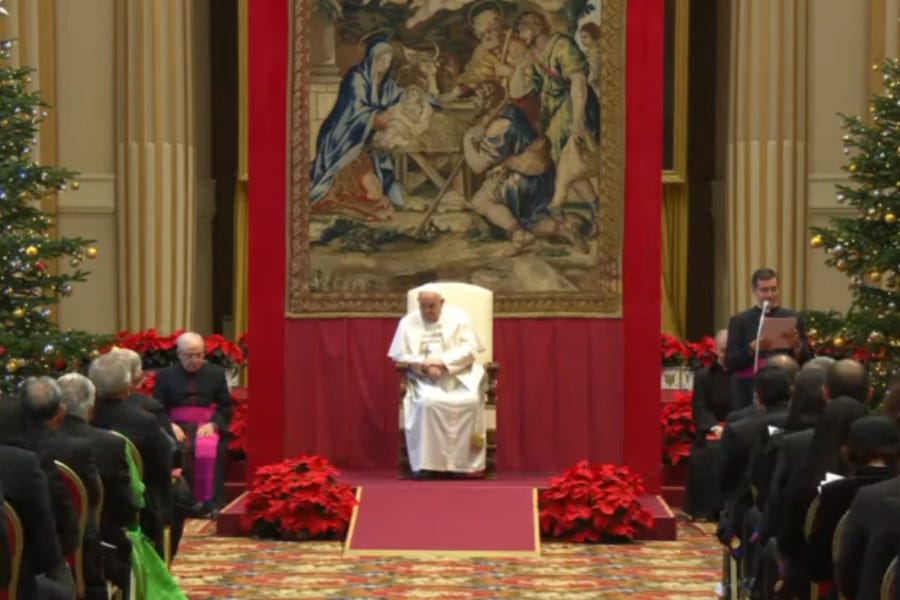Big takeaways from the pope’s 2025 ‘state of the world’ speech
Pope Francis set out his priorities in his annual address to diplomats.
Pope Francis set out his diplomatic priorities for 2025 Thursday, in his annual “state of the world” address to diplomats accredited to the Holy See.

The pope only read out the first few pages of his address before excus…
